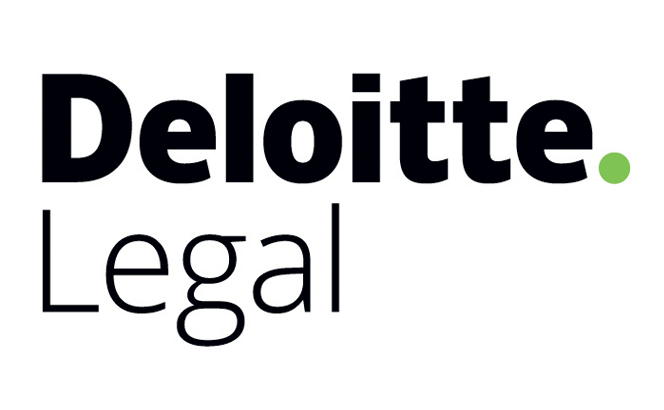1. What are the key regulatory requirements and compliance challenges that law firms operating in Uruguay’s banking and finance sector currently face?
Capital Markets Act No 18.627 enacts the framework for companies operating in the Uruguayan Capital Market (issuers, brokers, investment advisers, etc); Law No 15.322 regulates the same for banks and all relevant entities acting as financial intermediators; Law No 16.426 regulates insurance and reinsurance framework (as well as Law No 19.678 that sets certain terms and conditions that shall be stipulated in the insurance agreements/policies); Laws No 16.713 regulates the Pension Funds Administrators (law that has been recently modified by Law No 20.130, that modified the Uruguayan pension regime); Law 16.774 rules mutual funds; and Law 19.210 and 18.573 regulates the payment system.
Moreover, the Central Bank of Uruguay (CBU)’s Organic Act sanctioned under Law No 16.696 sets out the organisation structure of the regulator of the financial industry (note that in the near future, Pension Funds Administrators will be regulated by a new authority).
Lastly, each licence granted by the CBU has its own legal framework which includes, depending on the type of licence, the need to request prior authorisation from the executive branch and/or the CBU, requirements regarding corporate governance, senior personnel, the constitution of guarantees, IT, AML, outsourcing restrictions, among others. Such framework is comprised into several ‘recompilations’ which are issued by the CBU in its capacity of regulator of the whole financial industry.
CBU is constantly issuing new regulations and rules, requiring the constant attention of legal advisers to regulatory changes.
All of the above (in addition to regulatory decrees of the executive branch) evidence that the financial industry is a highly regulated industry (of course that the degree of compliance requirements vary depending on the type of licence), and the challenges of law firms lies in staying updated on regulatory changes, regulator criteria, and aligning clients’ initiatives and operations with regulatory requirements.
Further, CBU’s latest practice includes consulting stakeholders and the public in general on normative projects, and law firms should be proactive in making contributions and suggestions.
2. Can you provide insights into recent developments or changes in banking and finance laws and regulations in Uruguay that may impact legal services in this sector?
Crypto assets are rapidly changing the financial ecosystem across the globe. Even though Latin America is still some steps behind from other jurisdictions, these assets awake strong interest among the financial operators.
Notwithstanding this, virtual assets that play a similar role to securities or shares (ie, security tokens and some utility tokens) raise several concerns from a regulatory perspective. In Uruguay, the CBU issued a regulatory framework for security crypto assets and, in 2022, the regulator sent a bill to the legislative branch to regulate those security virtual assets that fall into the regulatory perimeter of the CBU. Such bill is still in discussion in the Uruguayan Parliament.
Furthermore, recent Law No 20.130 modified the Uruguayan pension regime, introducing certain changers to the Pension Funds Administrators legal framework, which includes a new regulator, the creation of a third fund, changes in the investment regime, etc.
3. How do law firms in Uruguay assist international clients in navigating cross-border transactions and investments within the banking and finance industry?
Despite Uruguay being an attractive country to invest and do business in, in some cases international clients will seek advice to operate in Uruguay with the minimum physical presence within the territory.
Hence, when giving assertive legal advice, local input from seasoned legal professionals is crucial in balancing the client’s interest with local requirements and the CBU’s expectations; considering the elements that trigger the need to establish in Uruguay as a branch or subsidiary of the foreign company and the need to require a determined licence.
Furthermore, privacy rules shall also be considered, especially when targeting from abroad Uruguayan prospects.
Cross-border transactions always involve the application of conflict of law rules, some that have been recently modified by Law No 19.920. The possibility to choose the applicable law and competent jurisdiction is something relevant to consider in all international transactions, as well as the possibility to enforce a foreign judgment or arbitral award.
4. What are the typical legal services offered by law firms in Uruguay to financial institutions, including banks, credit unions, and investment firms?
Law firms with a solid track record in the financial industry offer a wide range of services. Ordinary legal services usually comprehend on-going regulatory advice and assisting the client before the CBU with information requirements, updates of company and business information, among others.
Besides from this, frequent legal input encompasses the assistance to the client with the regulatory requirements to obtain a licence before the CBU. Moreover, law firms advising in financial services usually assume a key role in the issuance of public offerings within the national capital market.
5. How has the adoption of fintech and digital banking technologies affected the legal landscape for banking and finance in Uruguay, and how are law firms adapting to these changes?
The fintech ecosystem in Uruguay follows the positive trend of innovation that is currently facing Latin America. Consequently, there is an increasing number of M&A transactions, as well as requests for legal input, that directly or indirectly relate to the fintech ecosystem.
Under this frame, it has been challenging for some traditional legal services providers to follow the industry rationale as well as the specific knowledge and culture that encompass the technology environments.
Besides, the fintech industry is an attractive ecosystem for legal services as there are regulatory requirements to be met, being particularly relevant the experienced legal input.
6. Are there any notable trends in dispute resolution and litigation related to banking and finance matters in Uruguay that law firms are actively involved in?
Issues that generate complaints or the application of sanctions by the CBU are typically related to breaches of consumer protection, investor protection, and anti-money laundering rules.
7. What are the key considerations for foreign investors looking to enter the Uruguayan banking and finance market, and how can legal counsel assist them in this process?
Legal counsel can assist foreign investors in all the relevant matters, from entity formation, legal regulatory advice to the specific filing procedure before the CBU.
As we mentioned above, landing in Uruguay may be significantly smoother if a seasoned legal counsel enters the discussion. Consequently, the absence of legal input or by a counsel not fully interiorised in the financial law sector could harm or delay the project.
8. Can you provide insights into the role of environmental, social, and governance (ESG) factors in banking and finance legal services in Uruguay and any associated legal requirements?
There is an increasing interest on ESG investing, and Uruguay is giving steps towards that aim.
This year, Uruguay had issued sovereign sustainability-linked bonds (SSLB), which are Uruguayan debt linked with relevant climate and nature targets regulated under the Paris Agreement.
Besides this, aligned with the government priority for clean energy, there have been several project financings involving wind and solar farms, and more recently involving green hydrogen.
9. What are the primary challenges law firms face when assisting clients with regulatory compliance in Uruguay’s banking and finance sector, and how do they address these challenges?
Assisting customers in achieving regulatory compliance within Uruguay’s banking and finance sector can be demanding. This is due to the continually changing regulatory landscape and cross-border regulations, which lead to various obstacles for law firms.
It can be challenging to keep up with the latest regulations and keep customers informed, while still maintaining cost-effective services. Law firms tackle these challenges by ensuring customers comprehend the essentiality of compliance and being proactive about informing them of any changes to the rules.
10. Are there any specific opportunities or areas of growth that law firms in Uruguay are currently exploring within the banking and finance legal market?
As the fintech industry is a rapid-changing environment, considerable opportunities for law firms to gain market share within the new players are constantly arising.
In this sense, traditional finance clients are buying emerging fintech startups to position in this new relevant market, and there is a thriving and mature fintech ecosystem whereas entrepreneurs are launching new projects and endeavours.
Hence, law firms should capitalise this opportunity both with the new and arising firms but also with traditional finance clients.
For more information contact:

Javier Dominguez
Senior manager
E: javdominguez@deloitte.com

Juan Bonet
Partner
E: jbonet@deloitte.com

Guillermo Lorbeer
Senior associate
E: glorbeer@deloitte.com















